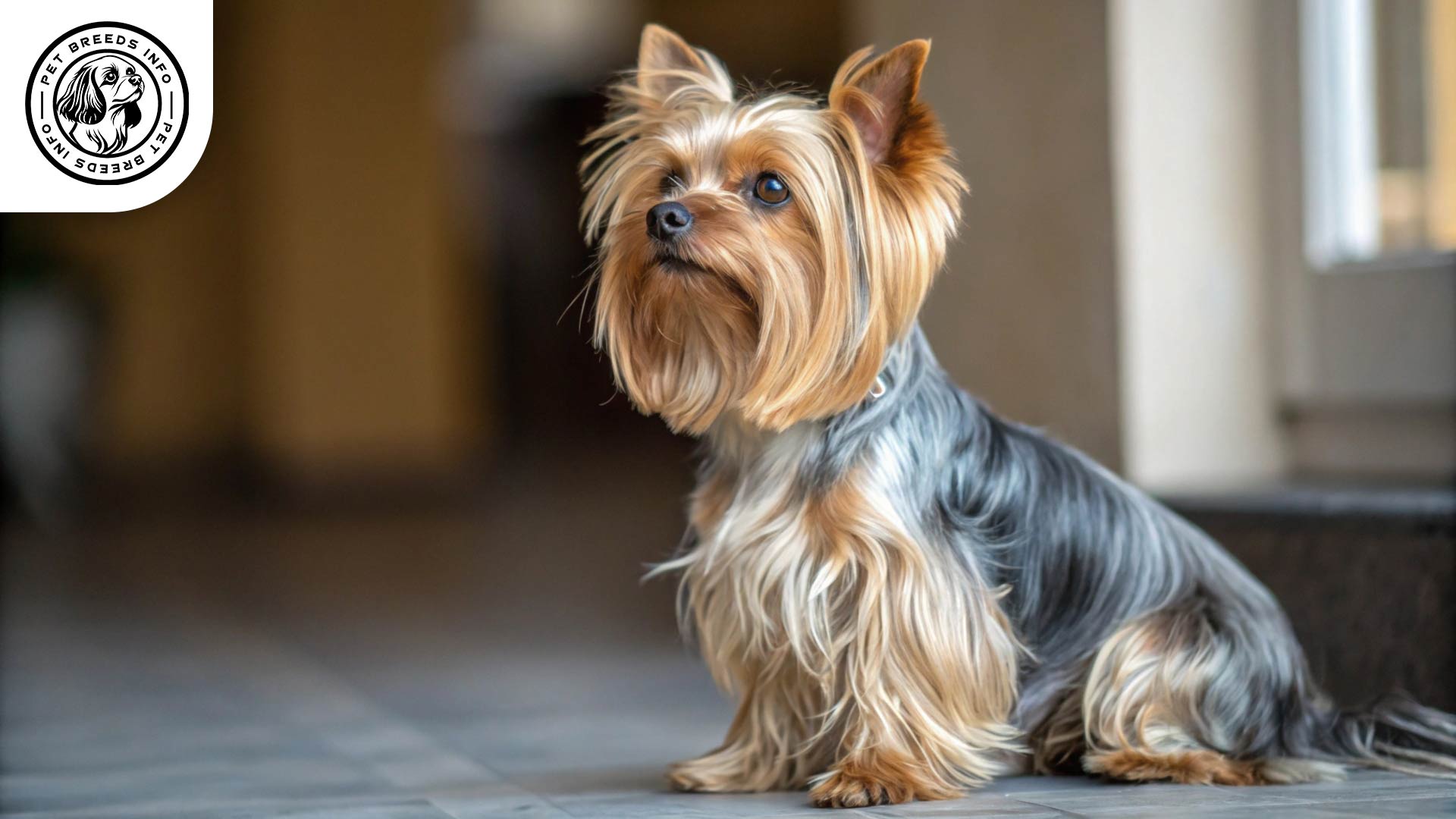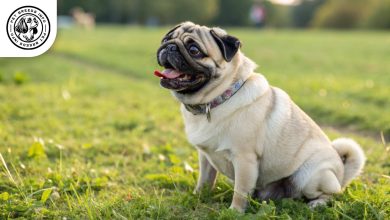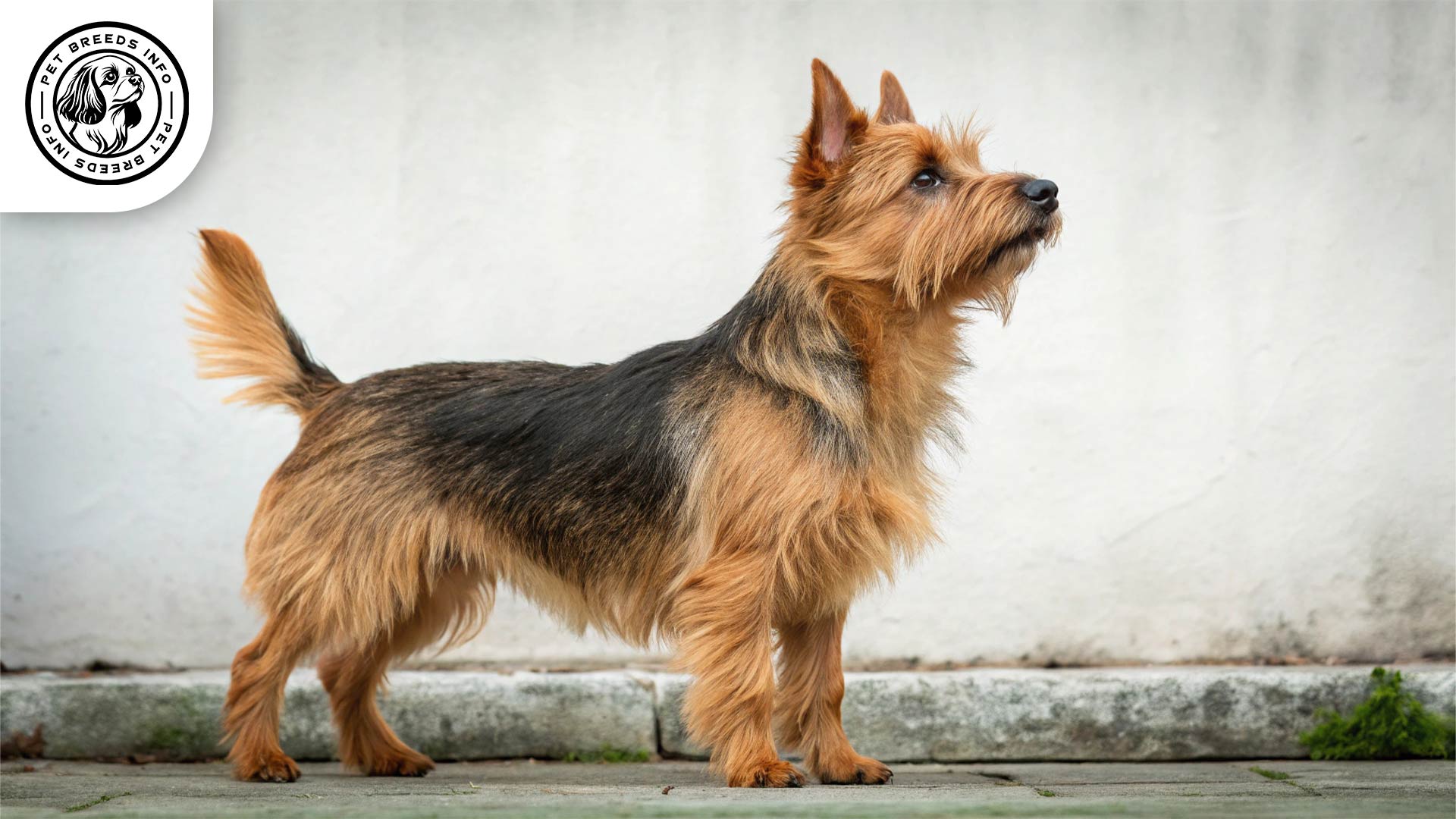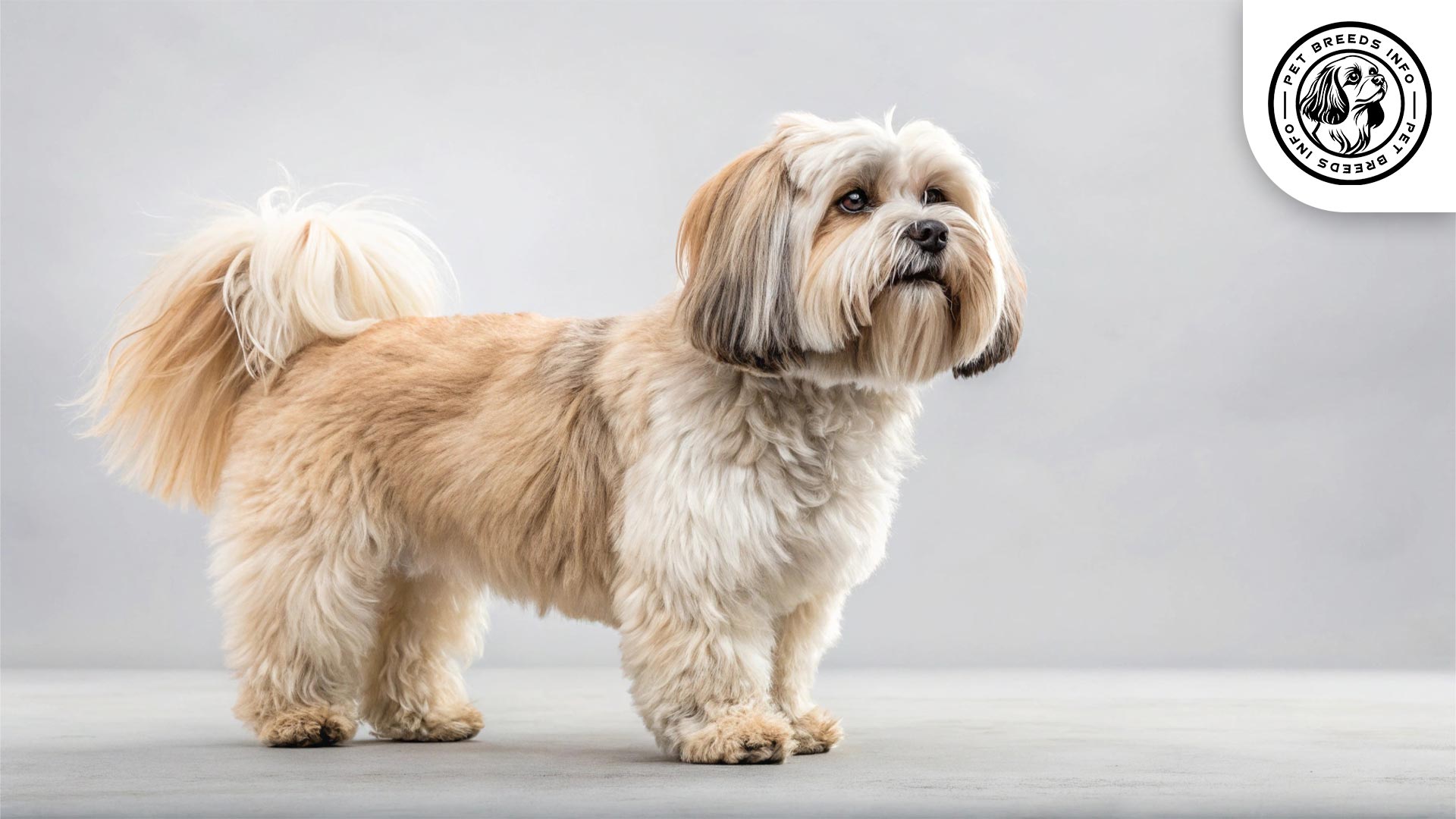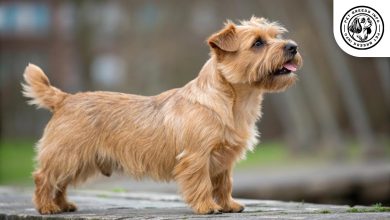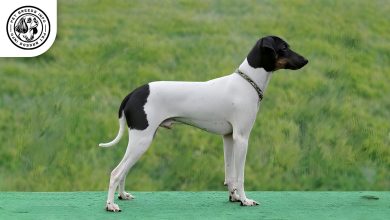Yorkshire Terrier Dog Breed: Size,Price & Personality
General Introduction of the Breed
The Yorkshire Terrier, commonly known as the Yorkie, is a small but feisty breed with origins in England. Developed during the 19th century in Yorkshire, this breed was initially used to catch rats in textile mills and mines. Over time, it evolved into a beloved companion dog, prized for its elegant appearance and lively personality.
Table of Contents
| Weight | 4 to 7 pounds (1.8 to 3.2 kg) |
| Lifespan | 12 to 15 years |
| Diet | High-quality dry kibble, wet food, or balanced raw diet for small breeds. Avoid chocolate, onions, garlic, grapes, and high-fat/processed foods. |
| Care | Daily walks, regular grooming (daily brushing), bathing, nail trimming, ear cleaning, dental care. Sensitive to extreme weather (hot and cold). |
| Health | Prone to patellar luxation, dental issues, hypoglycemia, tracheal collapse, allergies, and food sensitivities. Routine vet check-ups are essential. |
| Color | Combination of black, tan, and blue. Color changes as they mature. |
| Nature | Intelligent, loyal, playful, mischievous, wary of strangers (good watchdogs), strong bonds with owners, sensitive to environmental changes. |
| Price | $1,000 to $3,500 (puppy from breeders). Adoption fees are typically lower. |
Physical Characteristics
Yorkshire Terriers are a toy breed with a small stature. Males and females typically stand between 7 to 8 inches tall at the shoulder and weigh around 4 to 7 pounds.
Their coat is fine, silky, and straight, often growing long enough to reach the floor when left untrimmed. Common colors include a combination of black, tan, and blue.
Their eyes are medium-sized, dark, and have an intelligent, alert expression.
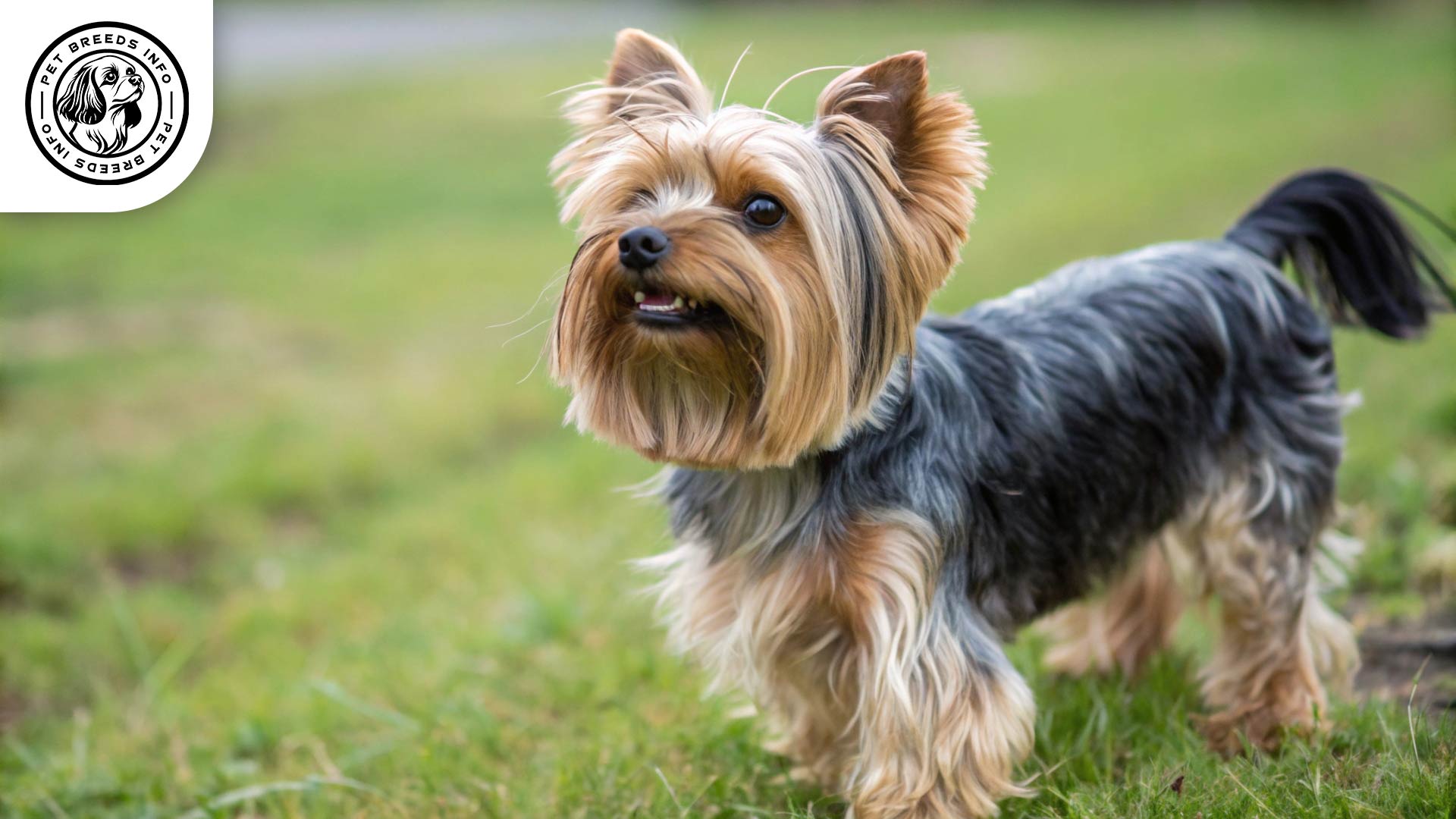
The ears are small, V-shaped, and stand erect, giving them a keen and watchful appearance. The tail is commonly docked in some regions but, when left natural, is of moderate length and carried slightly higher than the back.
One of the defining traits of the Yorkshire Terrier is its luxurious coat and petite, well-proportioned body, which contributes to its elegant and refined look.
Read More: Yakutian Laika Dog
Personality and Temperament
Yorkshire Terriers are highly intelligent and quick learners, making them easy to train when approached with consistency and positive reinforcement.
They have a high energy level and require regular playtime and mental stimulation despite their small size.
This breed forms strong bonds with its owners and thrives on human companionship, often displaying deep loyalty.
Yorkies are generally friendly but can be wary of strangers, making them excellent watchdogs. They tend to get along well with older children and other pets when properly socialized.
They have a playful and sometimes mischievous nature, enjoying games and toys.
The Yorkshire Terrier is sensitive to environmental changes and may not tolerate extreme weather conditions well.
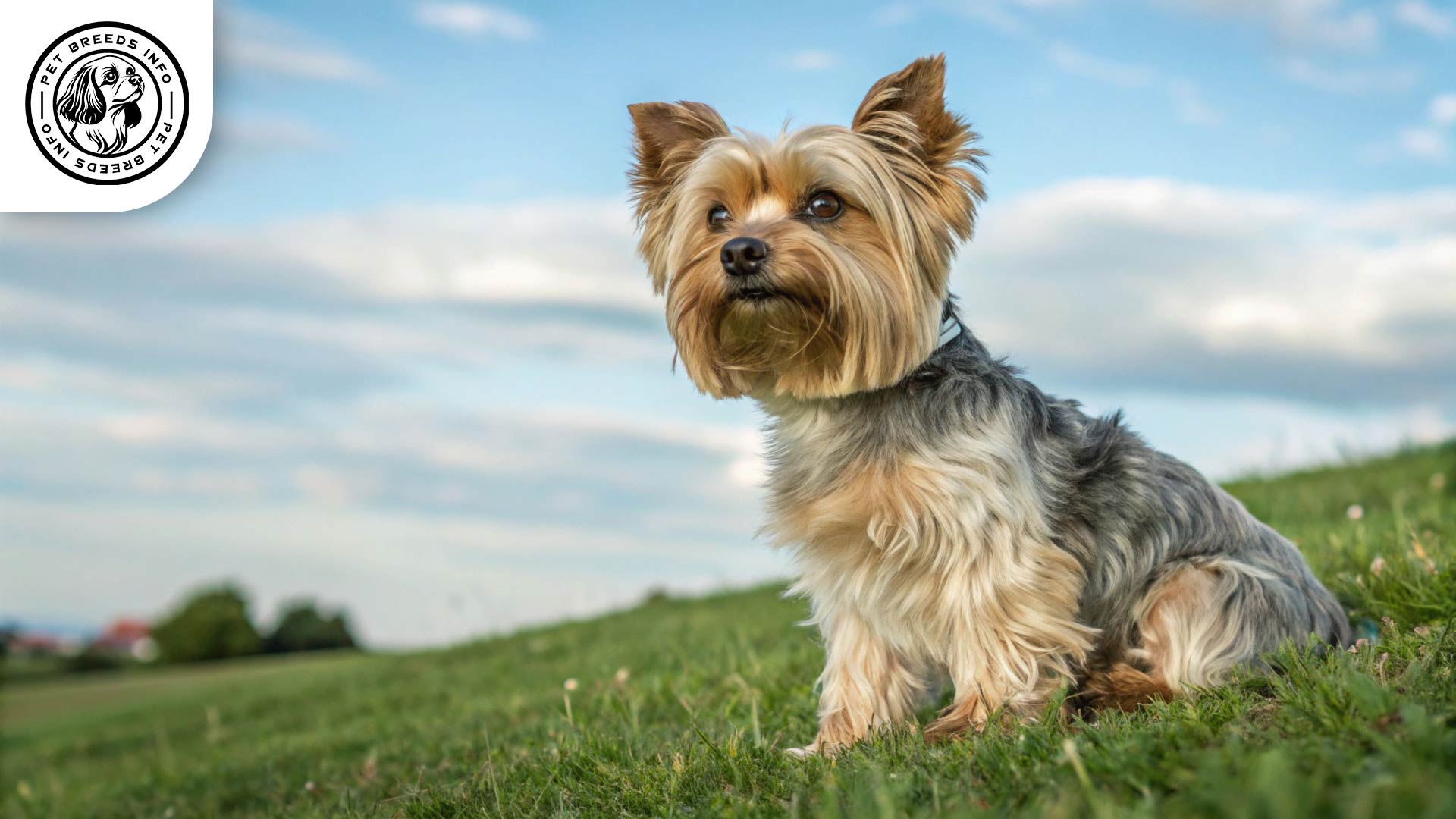
Care and Maintenance Requirements
Despite their small size, Yorkshire Terriers require daily walks and play sessions to keep them active and satisfied.
They adapt well to apartment living but need sufficient indoor entertainment to prevent boredom.
Regular grooming is essential due to their fine, long coat. Brushing should be done daily to prevent tangles and mats.
They are sensitive to both hot and cold weather, requiring protective clothing in the winter and shade in the summer.
Hygiene routines include regular bathing, nail trimming, ear cleaning, and dental care to prevent oral health issues.
Diet and Nutrition
Yorkshire Terriers do well on high-quality dry kibble, wet food, or a balanced raw diet suited to small breeds.
They have sensitive stomachs and require a well-managed diet to prevent digestive issues.
Foods to avoid include chocolate, onions, garlic, grapes, and high-fat or processed foods.
Portion sizes should be small and divided into two to three meals daily to maintain steady energy levels and prevent hypoglycemia.
Read More: Whippet Dog Breed
Health and Common Medical Issues
Common health concerns in Yorkshire Terriers include patellar luxation, dental issues, hypoglycemia, and tracheal collapse.
They are also prone to allergies and sensitivities to certain foods and environmental factors.
The average lifespan of a Yorkie is around 12 to 15 years with proper care.
Routine veterinary check-ups, vaccinations, and preventative care are crucial for maintaining their health and longevity.

Training and Behavior Management
Yorkshire Terriers are intelligent and eager to learn, but they can also be stubborn. Consistent training and positive reinforcement work best.
Early socialization is essential to ensure they develop confidence and good behavior around people and other animals.
Basic obedience training, such as teaching commands like sit, stay, and recall, should start at a young age.
House training may take time, requiring patience and routine to prevent accidents.
Interaction with Other Animals and Humans
Yorkshire Terriers are generally good with children but are best suited to families with older, gentle kids due to their small and fragile size.
They can get along with other pets if introduced properly, but their bold nature may lead to conflicts with larger dogs.
This breed is well-suited for both individuals and families, as long as they receive enough attention and interaction.
Yorkies are highly attached to their owners and may experience separation anxiety if left alone for too long.
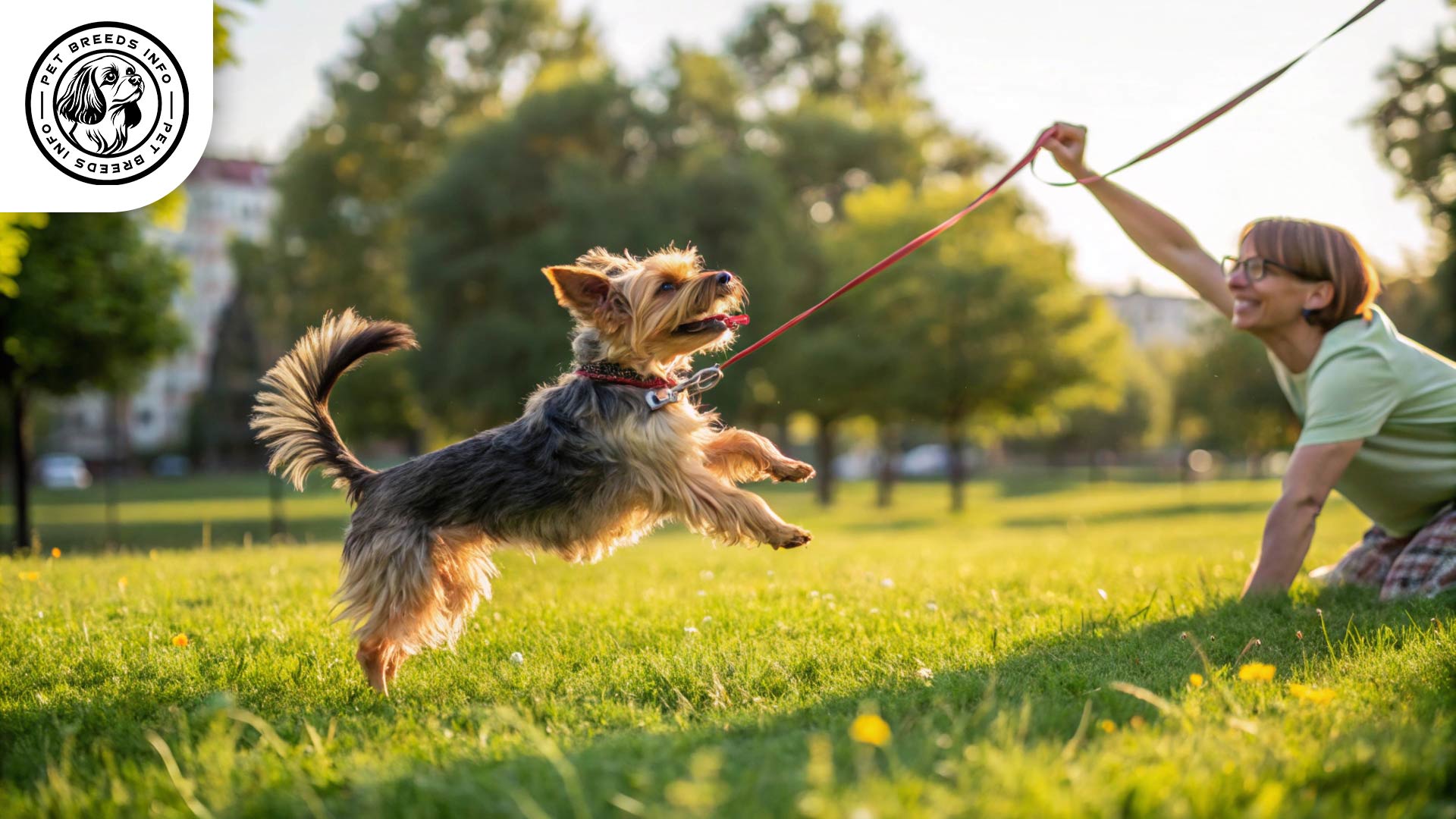
Price and Availability
The price of a Yorkshire Terrier varies depending on pedigree, breeder reputation, and location. On average, a Yorkie puppy can cost anywhere from $1,000 to $3,500.
Potential owners should research and choose reputable breeders or consider adopting from shelters and rescue organizations.
Adopting from a reputable source ensures the puppy is healthy and free from genetic defects or unethical breeding practices.
Read More: Wire Fox Terrier Dog
Conclusion and Final Thoughts
Yorkshire Terriers make excellent companions for individuals and families who can provide the attention and care they require.
They thrive in smaller living spaces such as apartments, provided they receive enough mental and physical stimulation.
Potential owners should be prepared for regular grooming and may need to accommodate the breed’s sensitivity to temperature and environmental changes.
Overall, the Yorkie is a charming, intelligent, and affectionate breed perfect for those looking for a small yet lively companion.
FAQ
What is the typical lifespan of a Yorkshire Terrier?
Yorkshire Terriers typically live between 12 to 15 years with proper care.
What kind of diet is best for a Yorkshire Terrier?
A high-quality dry kibble, wet food, or a balanced raw diet suited for small breeds is recommended. Avoid feeding them chocolate, onions, garlic, grapes, and high-fat or processed foods.
What are the common health issues in Yorkshire Terriers?
Common health concerns include patellar luxation, dental issues, hypoglycemia, tracheal collapse, and allergies.
How much does a Yorkshire Terrier typically cost?
On average, a Yorkshire Terrier puppy can cost anywhere from $1,000 to $3,500 from a breeder. Adoption fees are typically much lower.
What kind of temperament do Yorkshire Terriers have?
They are intelligent, loyal, playful, and can be wary of strangers, making them excellent watchdogs. They form strong bonds with their owners and thrive on human companionship.
